

Articles
December 19, 2024
Yatheen Brahma
10 Best AI Tools For Ecommerce (Free & Paid)
The ecommerce industry is evolving faster than ever, and artificial intelligence (AI) is leading the charge. From streamlining operations to enhancing customer experiences, AI has become an essential tool for online businesses.
Whether you're running a small startup or managing a large ecommerce platform, AI tools can make a world of difference. They can help you personalize shopping experiences, predict trends, and even automate repetitive tasks—allowing you to focus on growth and innovation.
And here’s the best part: finding the right AI tools for ecommerce businesses doesn’t have to break the bank. With both premium and free options available, there’s something for every business, regardless of size or budget. Let’s explore how these tools can transform your ecommerce strategy and uncover the best options for your needs.
Key Benefits of AI Tools for Ecommerce
AI is revolutionizing the way ecommerce businesses operate by simplifying processes and enhancing customer experiences. Among the many tools available, some are reshaping the industry in unexpected ways. Let’s take a closer look:
Personalized Shopping Experiences
AI uses customer data to create tailored product recommendations. This personal touch increases engagement, drives conversions, and leaves customers feeling valued.Inventory and Demand Forecasting
AI tools predict demand trends with remarkable accuracy. They help ecommerce businesses manage stock levels efficiently, reducing waste and ensuring popular items are always available.Customer Support Automation with AI Chatbots and Voice Agents
AI-powered customer support is evolving rapidly, with voice agents leading the charge in this transformation. While chatbots have become a common feature in many businesses, voice agents represent the next big leap. These advanced tools deliver a natural, conversational experience that feels remarkably human.
Picture a virtual assistant capable of handling order inquiries, troubleshooting issues, or even guiding customers through product selections—all through natural voice interactions. Unlike traditional systems, AI voice agents offer faster, more intuitive solutions, ensuring customers get the help they need without delays.
What makes this innovation stand out is its ability to provide 24/7 support while making interactions feel personal and seamless. As these tools gain momentum, they are reshaping how ecommerce businesses engage with their customers, setting a new standard for convenience and accessibility.
Dynamic Pricing for Ecommerce Business Optimization
AI tools analyze competitors, market trends, and customer behavior to adjust prices dynamically. This ensures businesses remain competitive while maximizing profitability, a crucial factor in the fast-paced ecommerce world.
AI voice agents, in particular, are redefining customer support by making interactions more personal and accessible. They signal a new era of ecommerce innovation, proving that technology can not only keep up with customer expectations but exceed them.
10 Best AI Tools for Ecommerce in 2024
When it comes to AI tools for ecommerce business, the options are abundant. Each tool offers unique features designed to enhance your online business. Here’s a breakdown of the top 10 tools, starting with Brilo AI, which stands out as the most comprehensive solution for ecommerce businesses.
1. Brilo AI
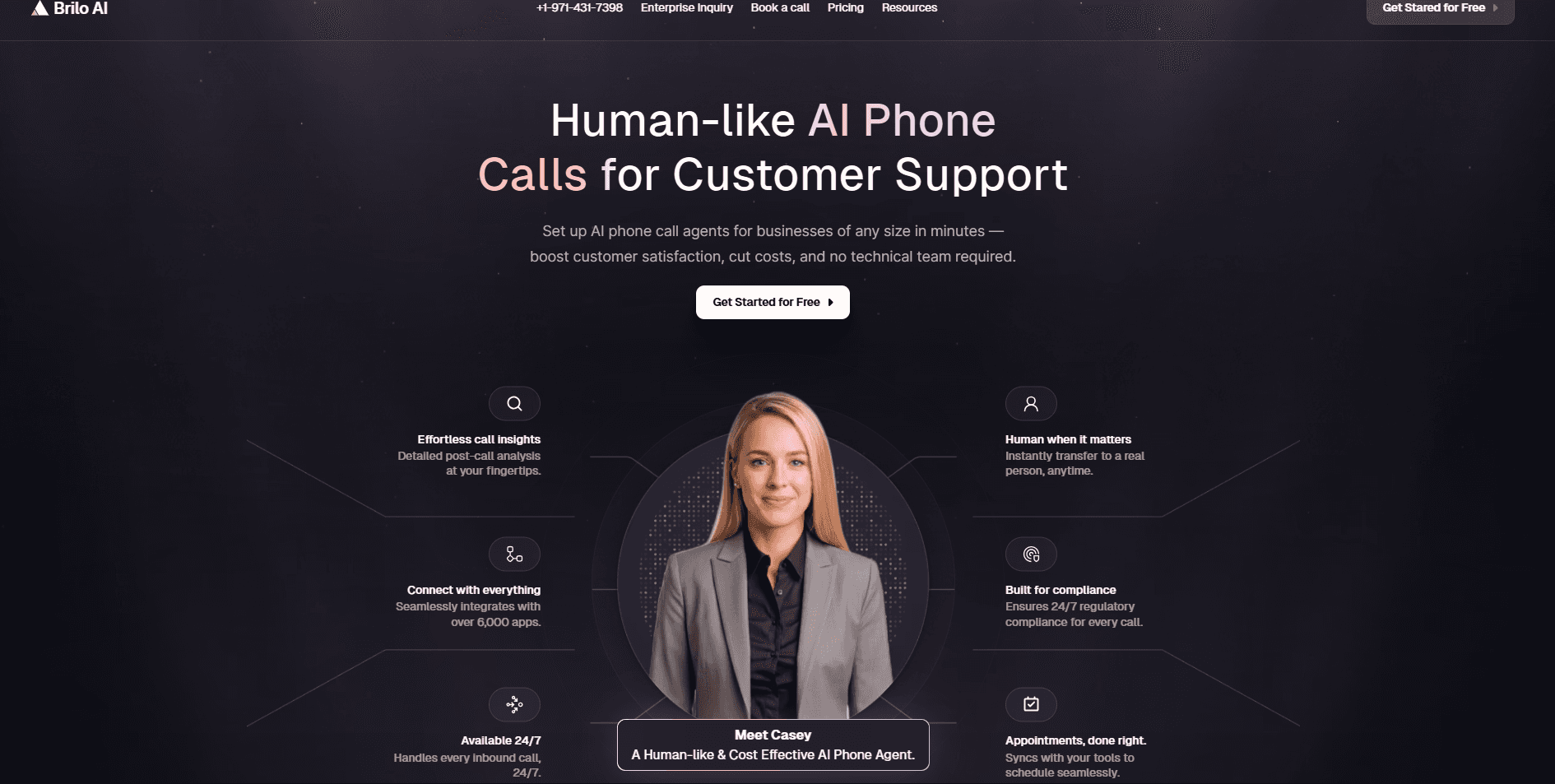
Main Features:
Advanced AI voice agents for customer support, offering human-like interactions
Advanced AI voice agents for customer support, offering human-like interactions
Reduces the need for large customer support teams, saving operational costs.
Unlike humans, AI voice agents maintain consistent accuracy and avoid misunderstandings.
Powered by machine learning, these agents improve over time, adapting to customer behavior and refining their responses.
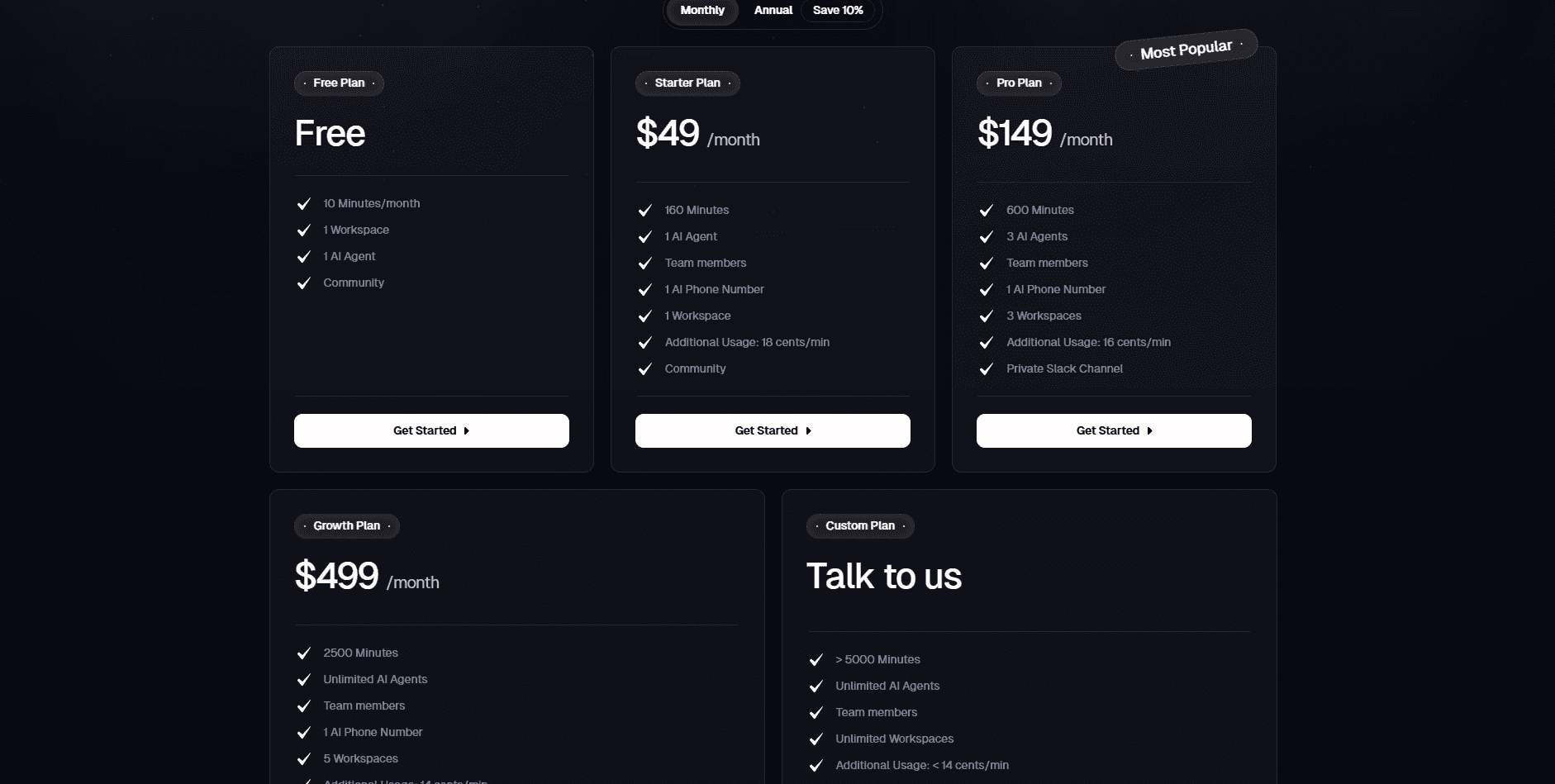
Pricing: Starts at $49/month with a freemium plan available.
Pros:
Industry-leading AI voice agents that set a new standard for customer support.
Easy integration with popular ecommerce platforms such as Shopify and WooCommerce.
Exceptional customer service and onboarding support.
Cons:
Currently available for ecommerce stores, with plans to expand into more industries soon.
Why It’s the Best: Brilo AI excels in delivering a complete AI-powered ecosystem for ecommerce businesses, making it a one-stop solution for growth and efficiency.
2. ChatGPT for Ecommerce
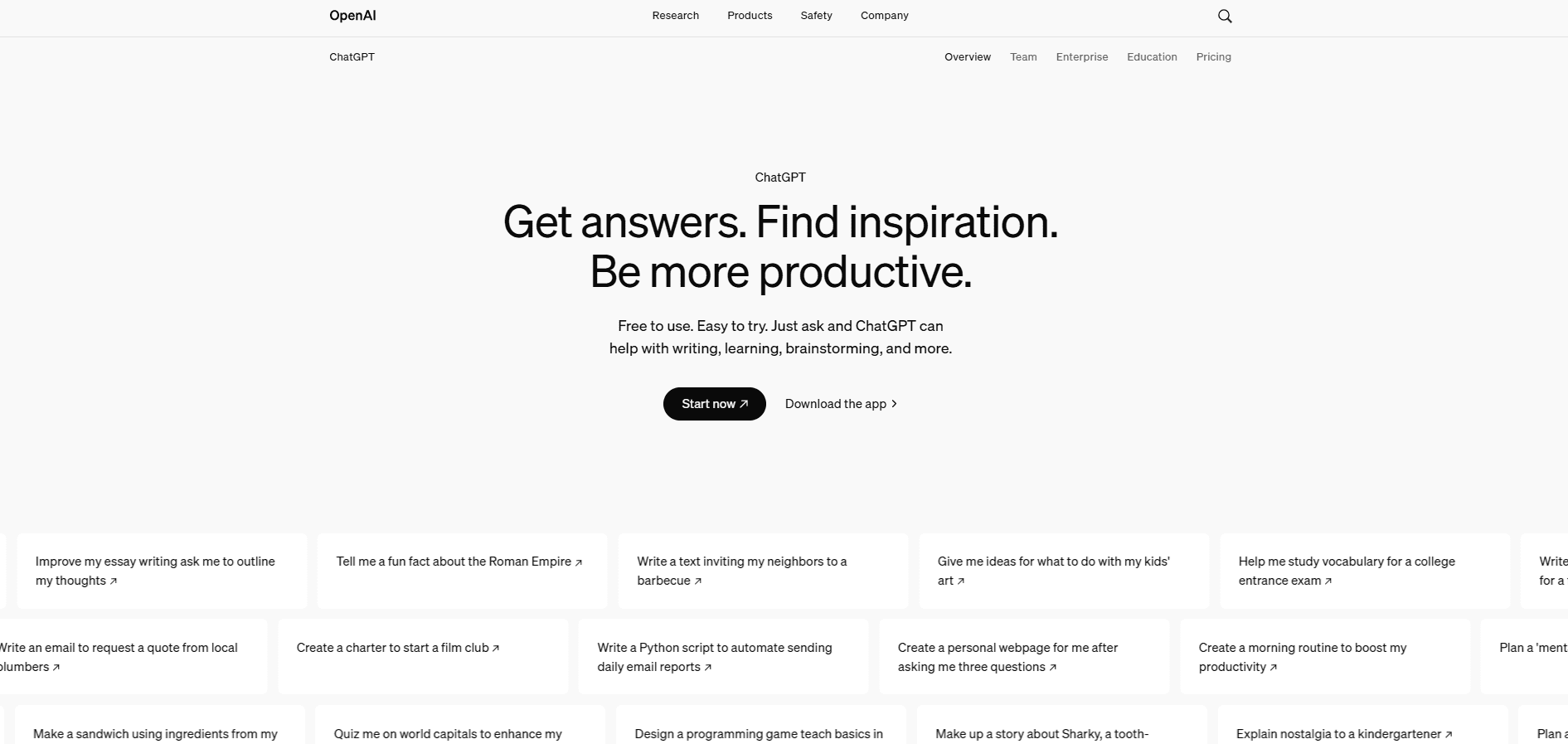
Main Features:
AI chatbots for 24/7 customer support.
Integration with major ecommerce platforms like Shopify.
Support for creating automated responses and content.
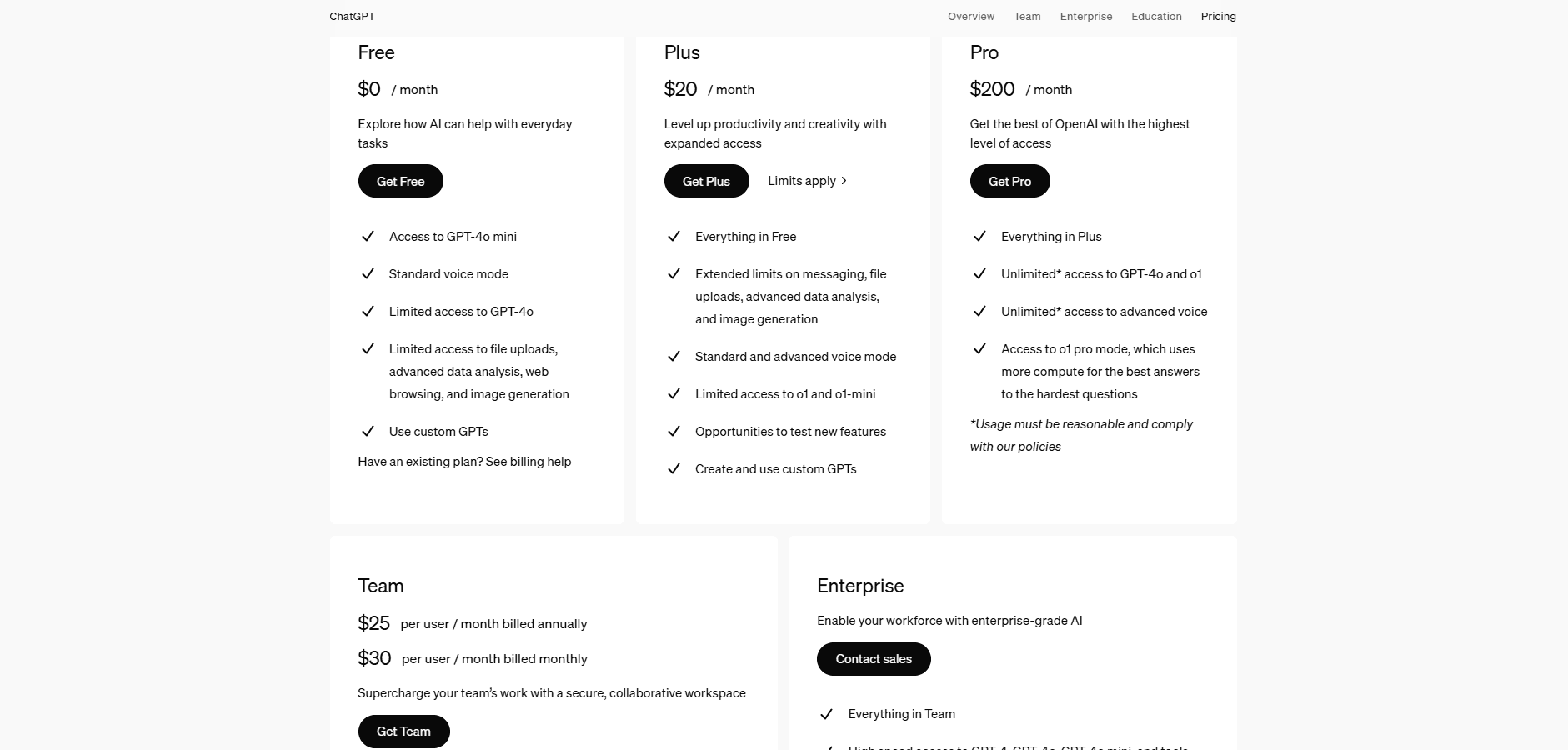
Pricing: Free plan available; premium plans start at $20/month.
Pros:
Affordable entry-level plan.
Flexible use for customer support and content generation.
Cons:
Lacks advanced voice support features.
3. Jasper AI
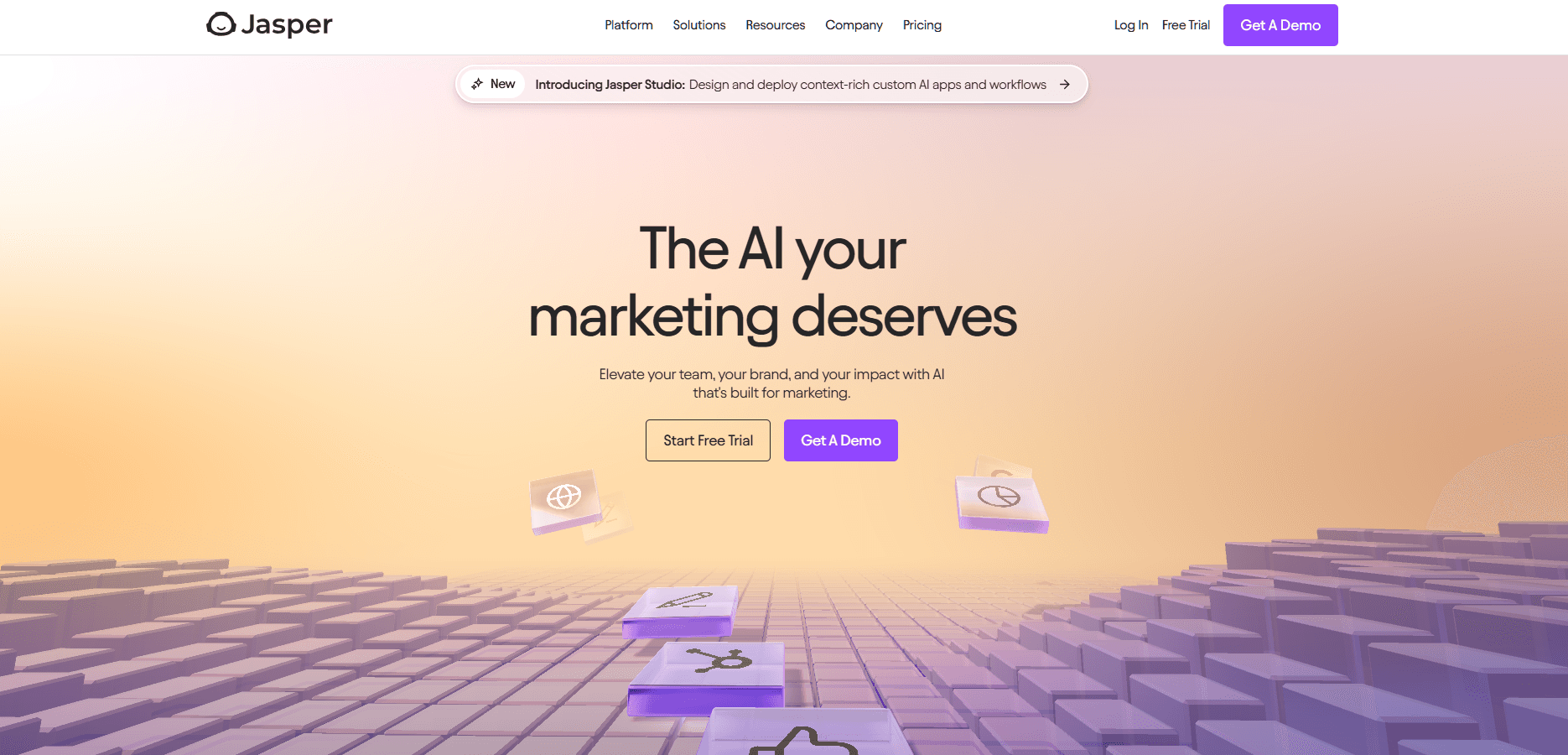
Main Features:
AI content generator for product descriptions and marketing.
Supports multiple languages for global ecommerce businesses.
Customizable templates for social media ads and emails.
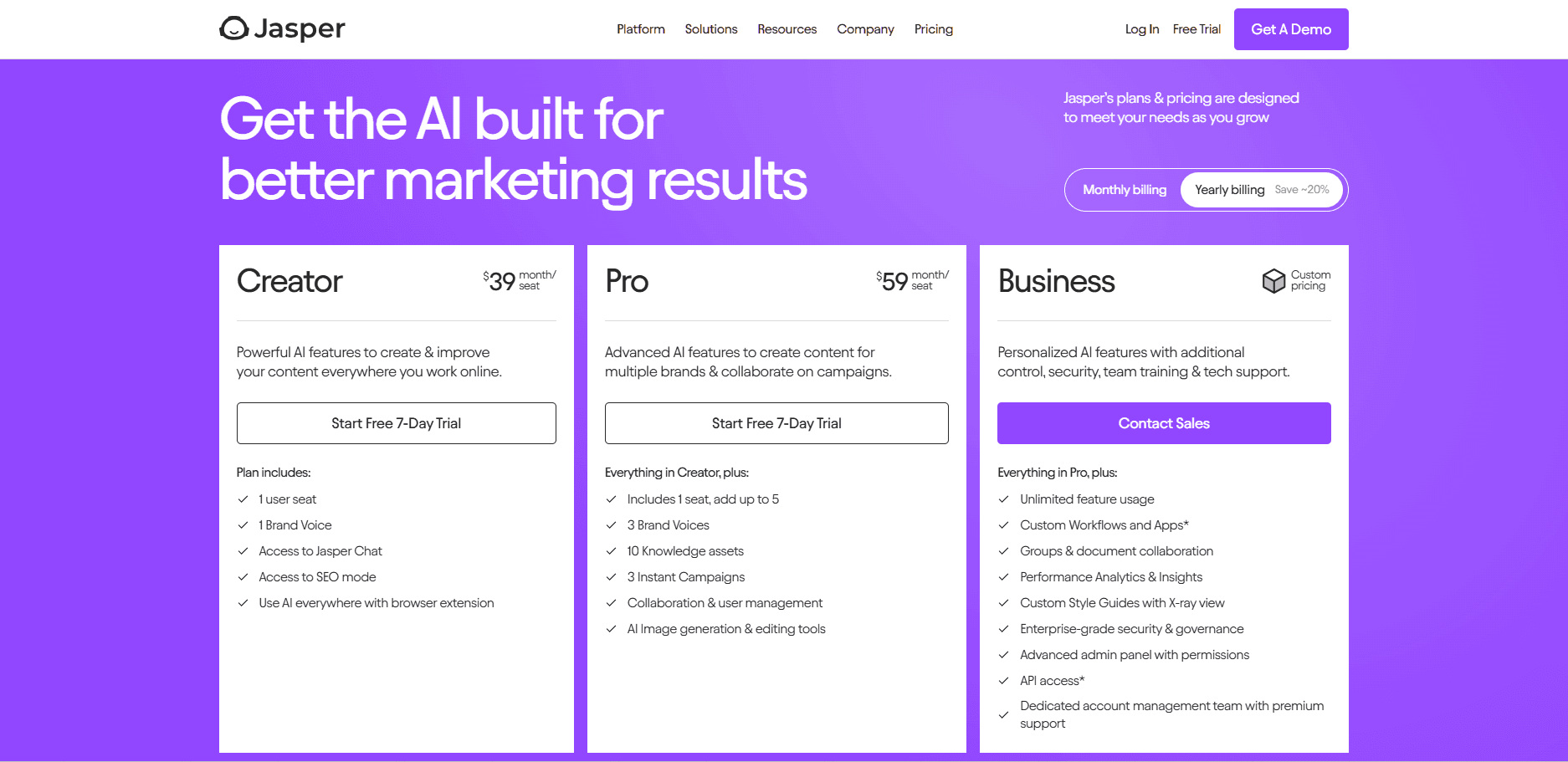
Pricing: Starts at $49/month.
Pros:
Time-saving tool for content creation.
Intuitive user interface.
Cons:
Limited focus on ecommerce-specific tasks.
4. Google Cloud AI
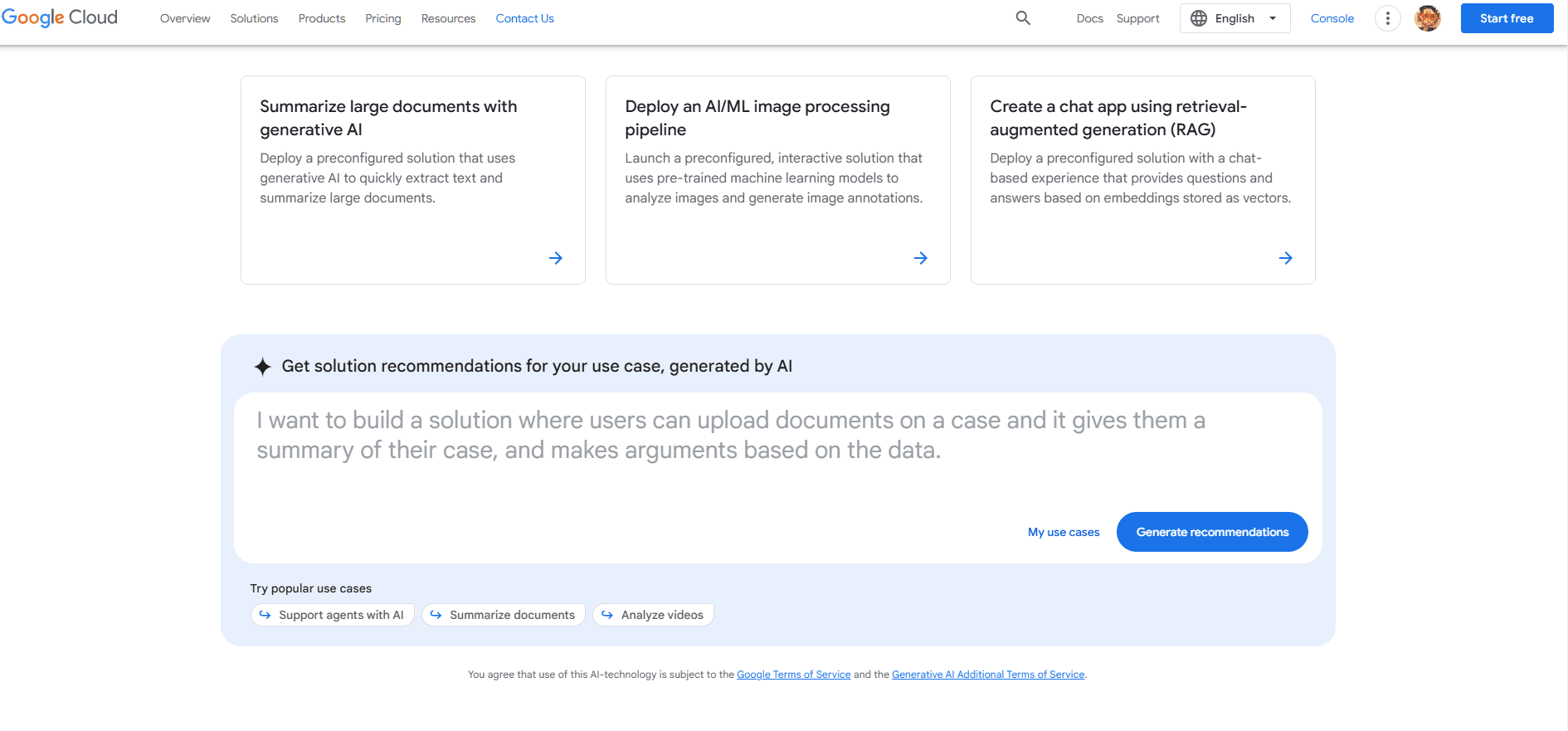
Main Features:
Machine learning models for demand forecasting and product insights.
AI-powered chat solutions for customer support.
Retail-specific AI solutions.
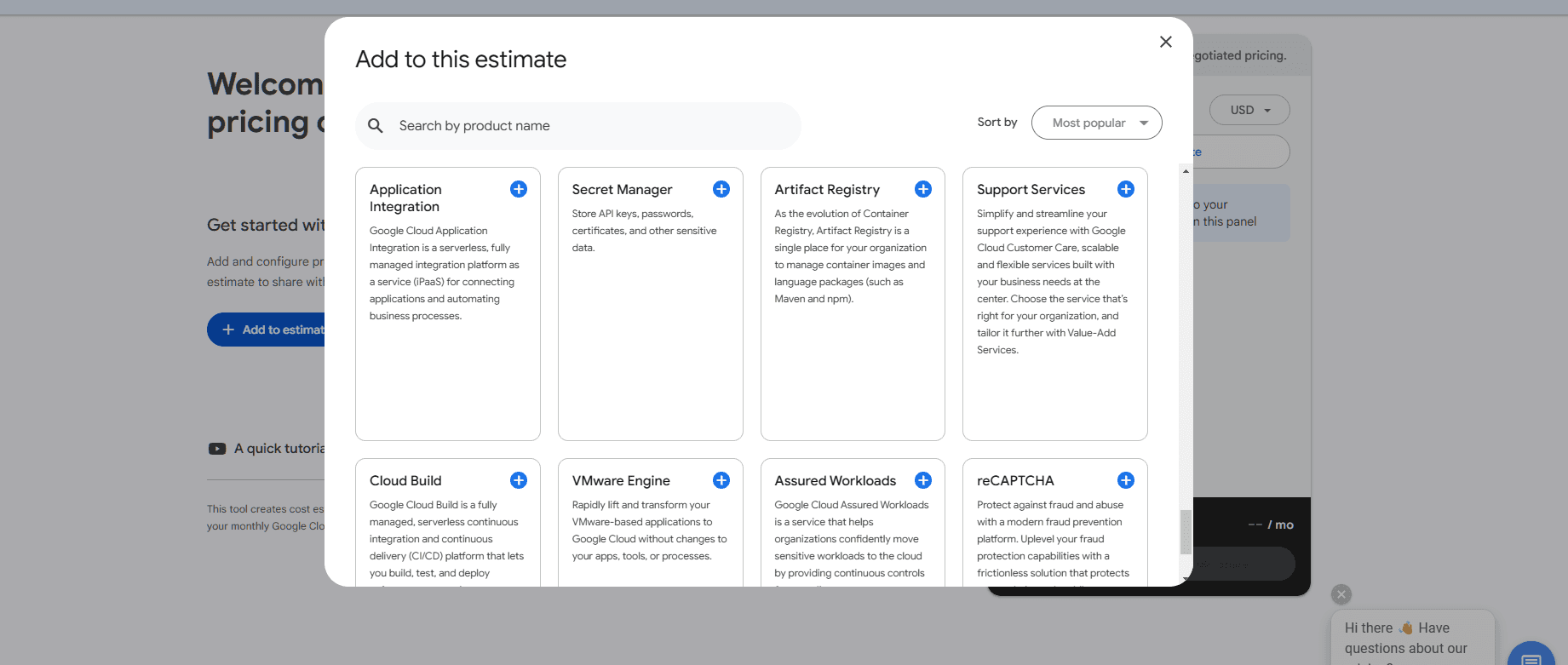
Pricing: Pay-as-you-go pricing model.
Pros:
Scalable solutions for large ecommerce platforms.
Backed by Google’s reliability.
Cons:
Complex setup for small businesses.
5. Shopify Inbox (Powered by AI)

Main Features:
AI-driven customer messaging platform.
Real-time product recommendations.
Integration with Shopify stores.
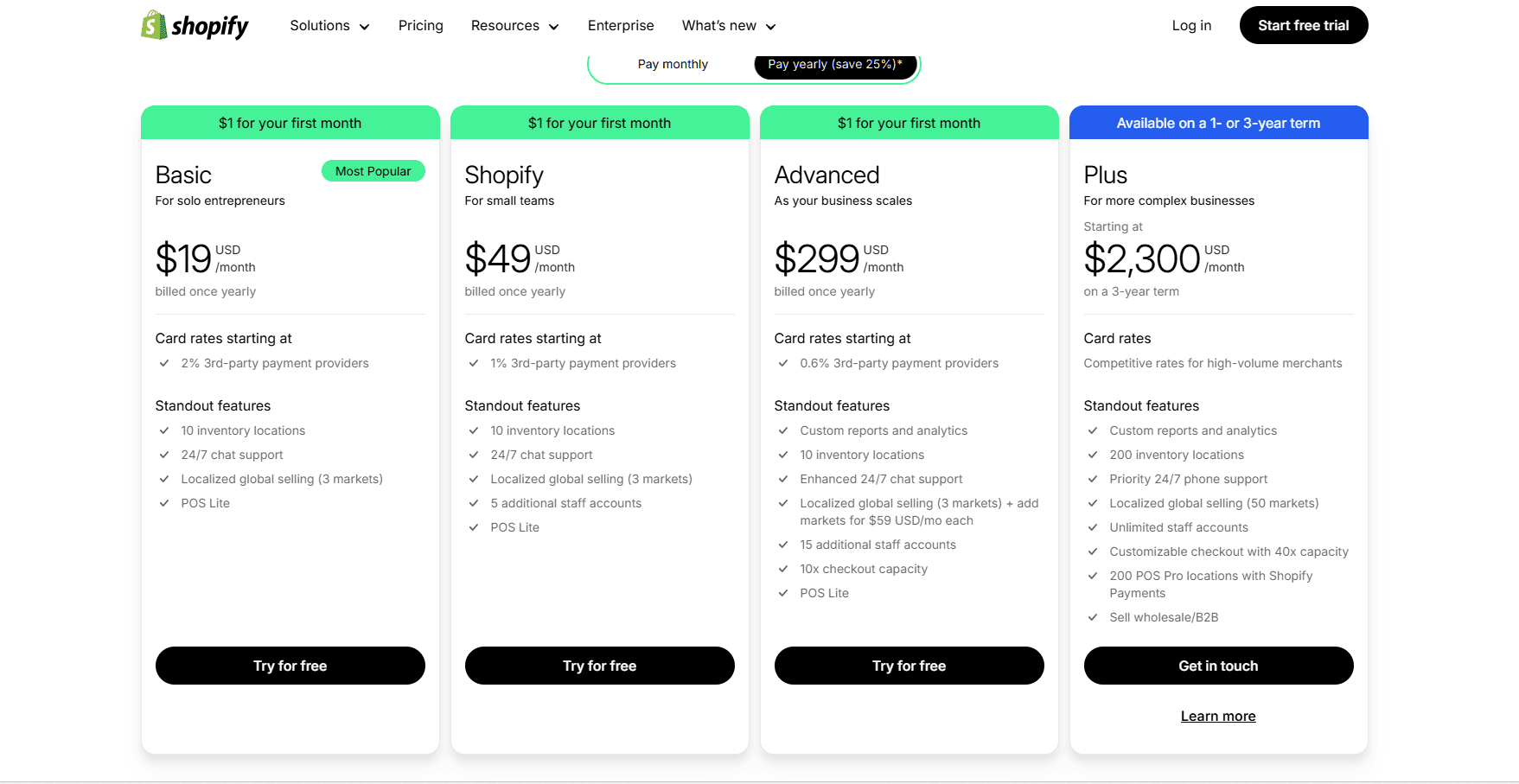
Pricing: Free for Shopify users.
Pros:
Seamlessly integrates with Shopify.
No extra cost for existing users.
Cons:
Limited functionality compared to standalone AI tools.
6. Tidio
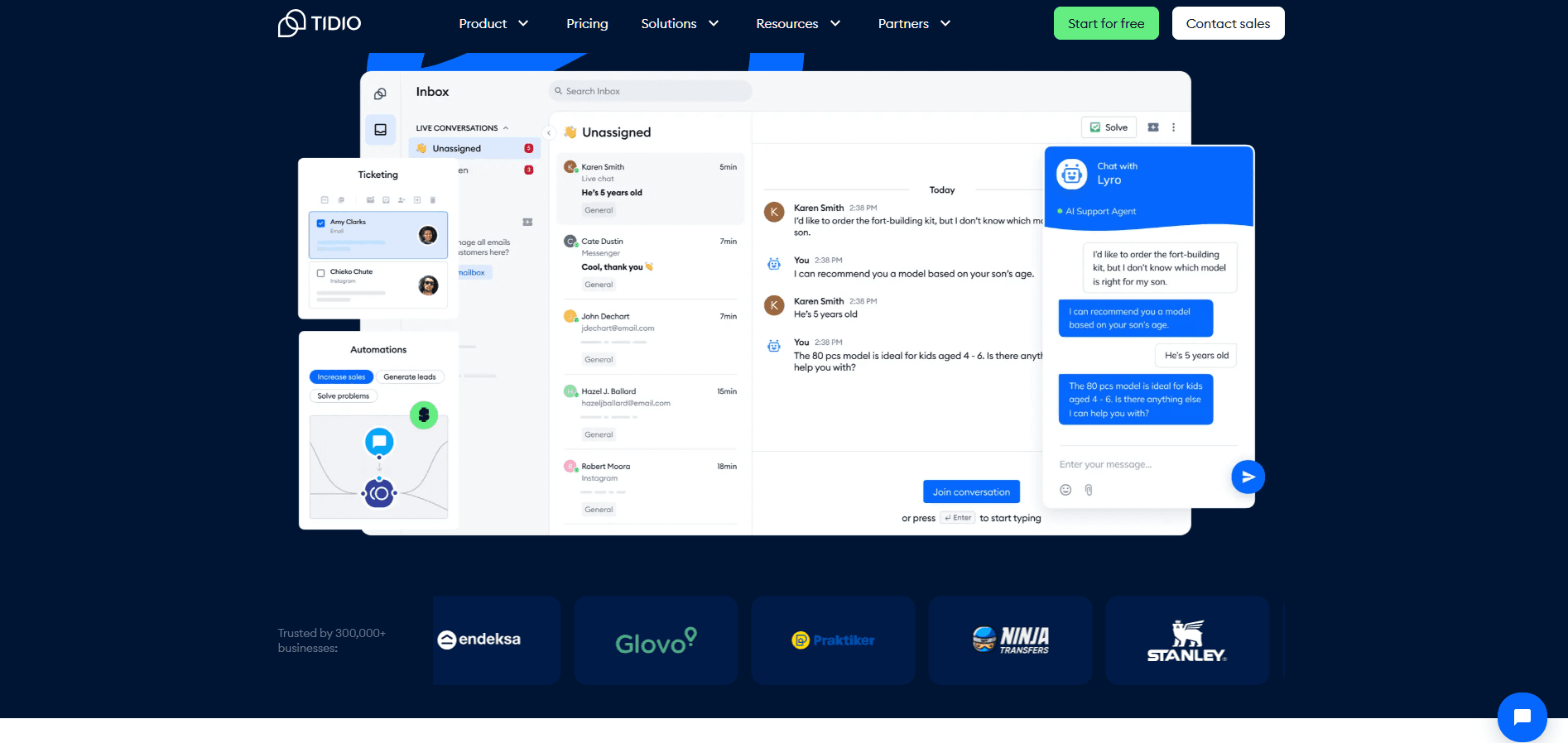
Main Features:
AI chatbots for customer engagement.
Email and live chat integrations.
Automated responses based on customer queries.
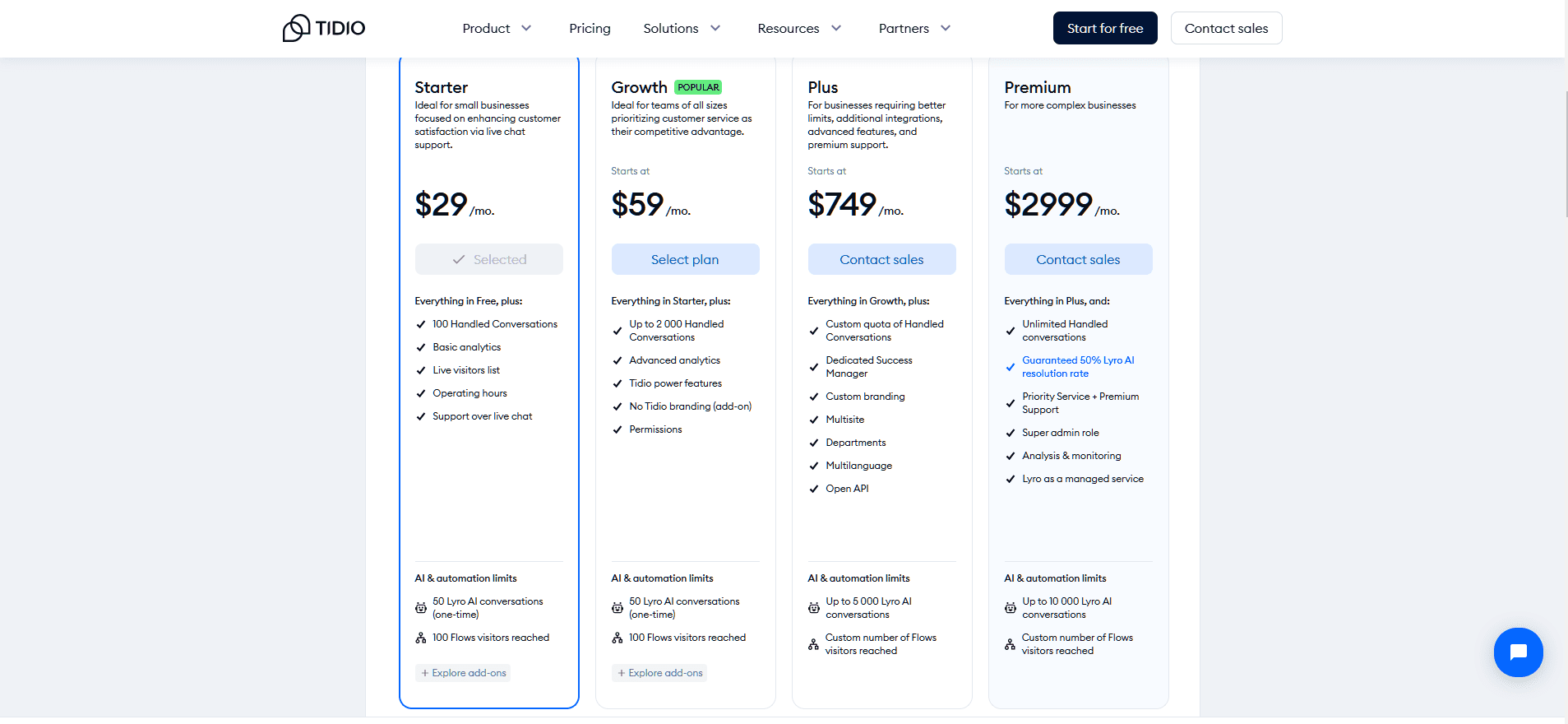
Pricing: Free plan available; premium plans start at $18/month.
Pros:
Affordable pricing for small businesses.
Easy setup process.
Cons:
Not ideal for handling complex customer interactions.
7. Rebuy Personalization Engine
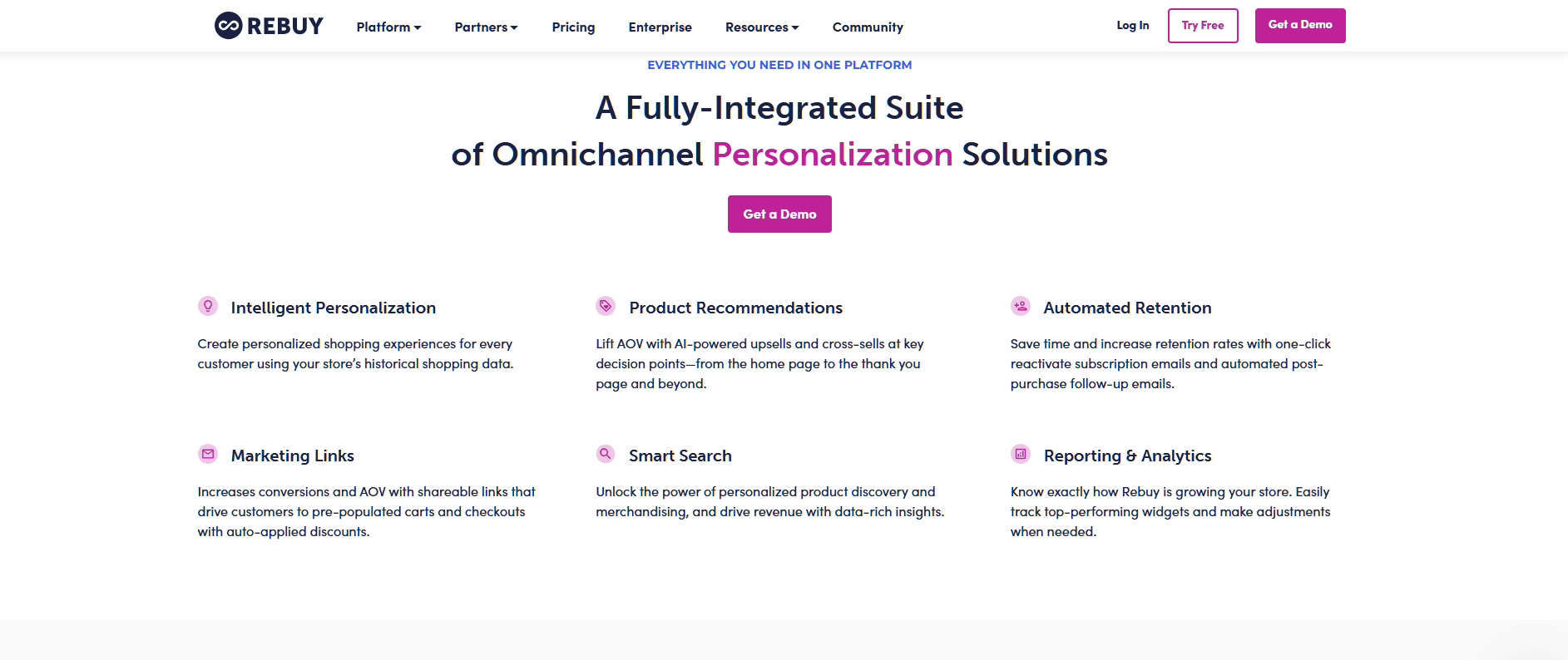
Main Features:
AI-based upselling and cross-selling recommendations.
Personalized homepage and cart experiences.
Insights dashboard for customer behavior.
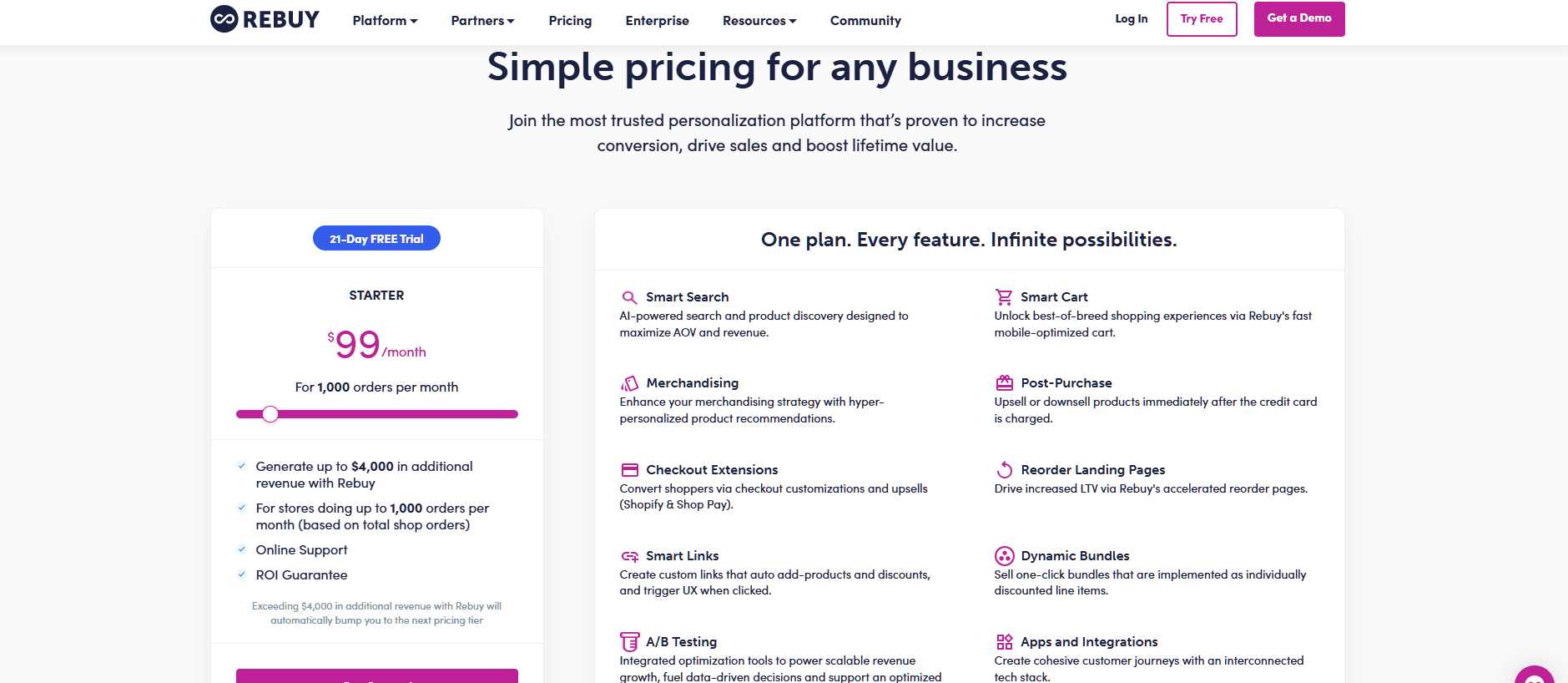
Pricing: Custom pricing based on business size.
Pros:
Exceptional focus on personalization.
Improves average order value.
Cons:
Limited features outside personalization.
8. Dynamic Yield
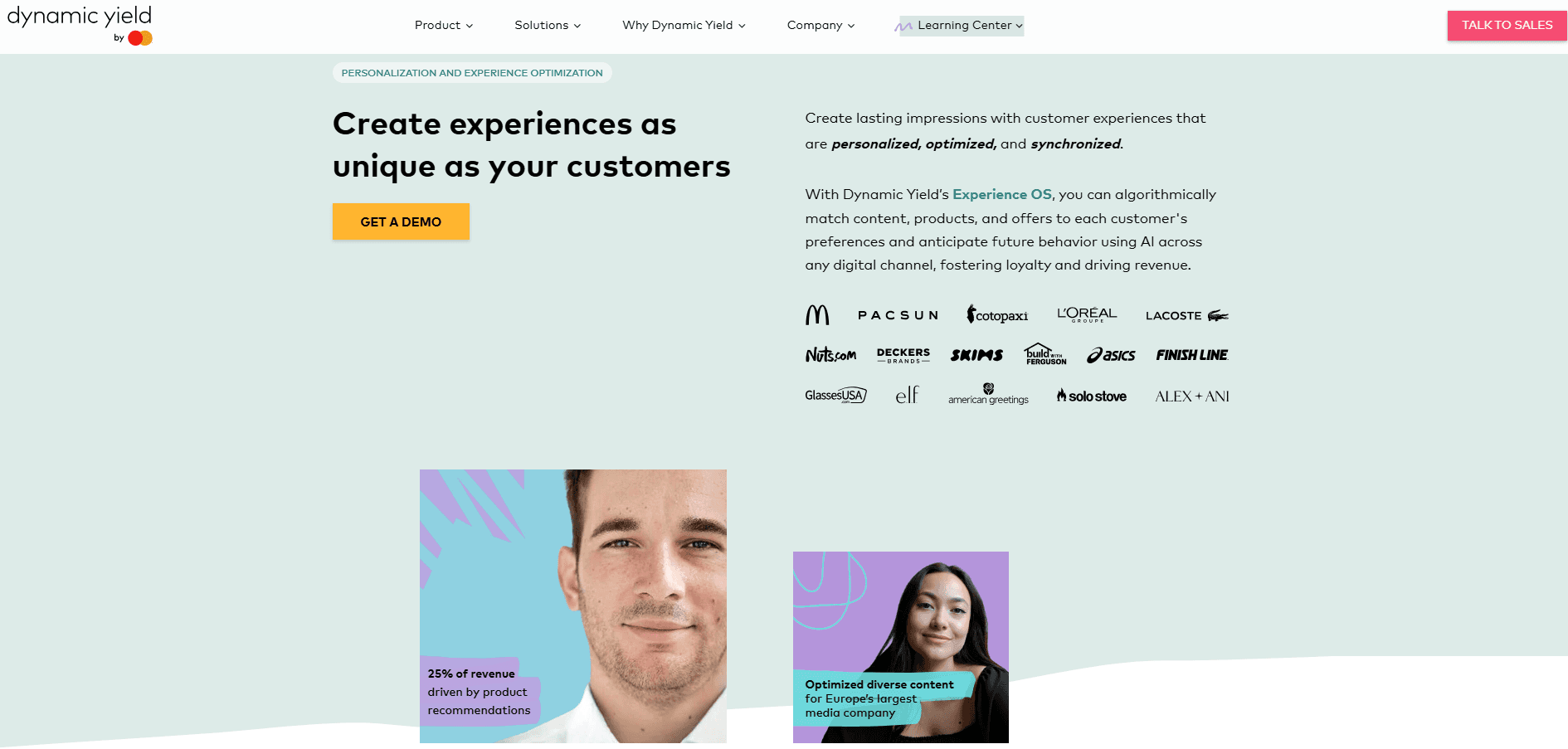
Main Features:
AI-driven personalization for website and app experiences.
A/B testing for optimizing customer journeys.
Multi-channel personalization.
Pricing: Custom pricing upon request.
Pros:
Advanced personalization features.
Suitable for large-scale businesses.
Cons:
Expensive for small businesses.
9. Brightpearl

Main Features:
AI-driven inventory management.
Financial reporting and demand forecasting.
Omnichannel retail solutions.
Pricing: Starts at $580/month.
Pros:
Comprehensive retail management tool.
Strong focus on inventory and finances.
Cons:
High pricing limits accessibility for smaller businesses.
10. Pictory AI

Main Features:
AI-powered video creation for ecommerce marketing.
Automated transcription and captioning.
Customizable video templates.
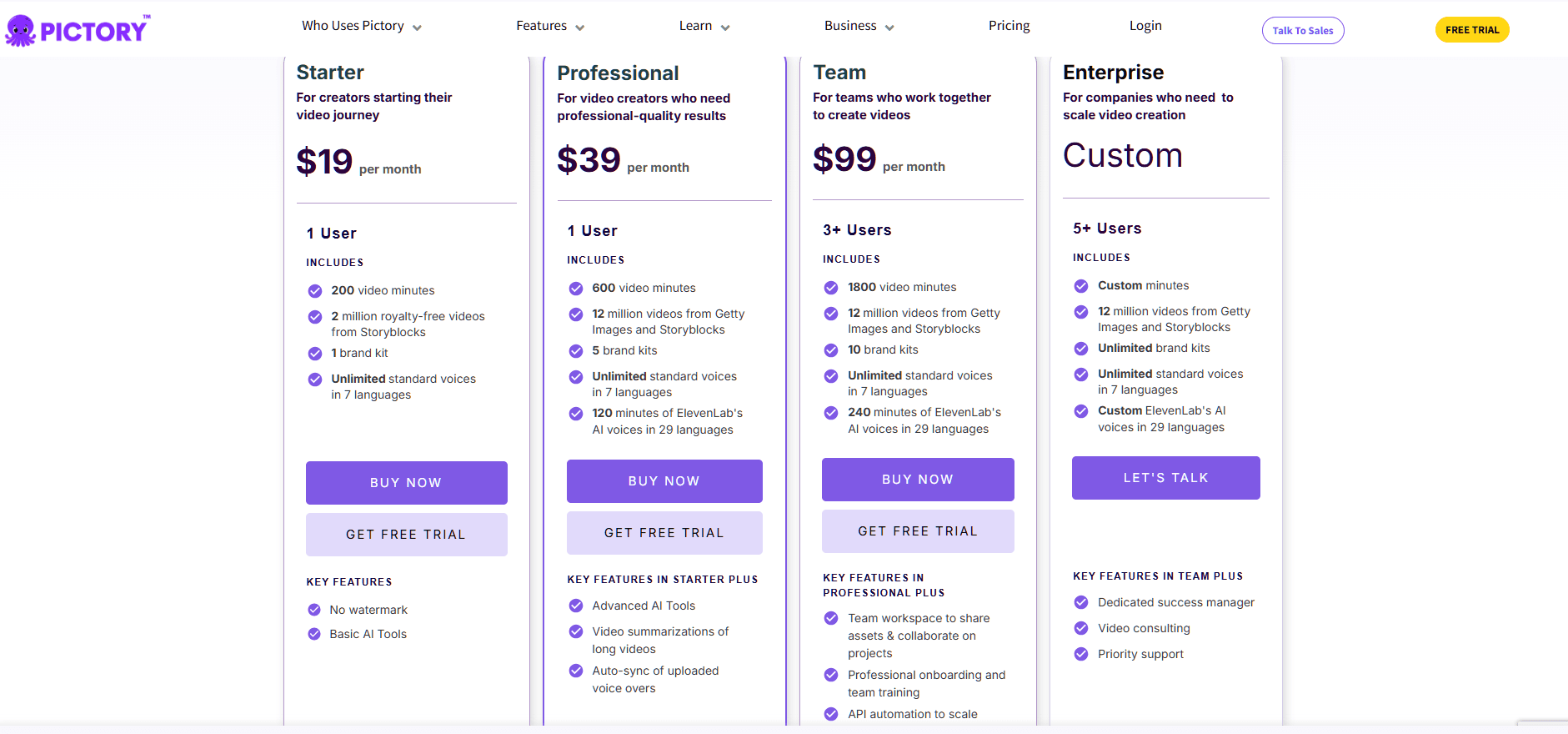
Pricing: Starts at $19/month.
Pros:
Great for creating engaging product videos.
Affordable entry-level pricing.
Picking the Right AI Tools for Your Ecommerce Business
Choosing the right AI tools doesn’t have to be overwhelming. The trick is to focus on what your business really needs and find tools that fit those needs perfectly. Here’s how you can make the smartest choice:
1. Match Your Business Goals
Think about where you are right now.
If you’re running a small store, go for simple, budget-friendly tools that get the job done, like improving customer support or suggesting products.
Got a big operation? You’ll need tools that can handle complex stuff like forecasting demand or managing multiple sales channels.
2. Think About Growth
Your business isn’t going to stay the same size forever (hopefully!). Choose tools that can grow with you, whether it’s adding features, managing more data, or handling bigger traffic spikes.
3. Check the Price Tag
Don’t just look at the cost—think about what you’re getting for it.
Some tools charge a flat fee, while others have monthly subscriptions or pay-as-you-go models.
If the tool saves time, boosts sales, or helps with productivity, it’s worth the investment.
4. Look for Easy Integration
Nobody has time for tech headaches. Find AI tools that play nice with your current setup, whether that’s Shopify, WooCommerce, or something else. Bonus points if they work with your email or CRM tools too!
5. Keep It Simple
A complicated tool can feel more like a burden than a solution. Look for something straightforward to use, with clear dashboards and reports you can actually understand without needing a degree in data science.
6. Test It Out
Most AI tools let you try before you buy. Take advantage of free trials or demos to see how they work and if they’re a good fit for your day-to-day operations.
7. Support Matters
Even the best tools can run into issues. Make sure there’s solid customer support you can rely on if things go sideways. A quick check of online reviews can save you a lot of frustration later.
At the end of the day, the best AI tools are the ones that make your life easier, your customers happier, and your business more profitable. Take your time, do a little research, and you’ll find the perfect fit!
How to Maximize AI Tools for Ecommerce Growth?
Implementing AI in your ecommerce business is more than just purchasing a tool and hitting "go." To really get the most out of these tools, you’ll need a strategy. Here are a few best practices to make sure you're getting the full value:
1. Start with Clear Goals
Before you even choose an AI tool, define what you want to achieve. Are you looking to boost sales? Improve customer support? Automate inventory? Knowing your goals will help you choose the right tools and measure their effectiveness.
2. Integrate AI Seamlessly
Don’t try to overcomplicate things. Pick tools that integrate well with your current ecommerce setup and existing systems, like your CRM, email marketing software, and customer service platforms. The less friction you have in setup, the quicker you’ll start seeing results.
3. Train Your Team
AI tools are only as good as the people using them. Provide your team with proper training so they can maximize the potential of the new tools. This includes understanding how to use the AI insights, setting up automation properly, and knowing when to step in if the AI needs a little help.
4. Keep Tracking and Optimizing
The beauty of AI is that it keeps learning. Monitor how the tools are performing, track the results, and adjust as needed. Use the insights to continually optimize everything from pricing strategies to product recommendations.
5. Stay Updated
AI technology is evolving fast. Stay on top of updates and new features that your tools might offer. You want to be using the latest, most advanced features to stay ahead of your competition.
Real-Life Success Stories of Ecommerce Businesses Leveraging AI Tools
Example 1: Shopify Store Increasing Conversions with AI Chatbots
A small ecommerce store that sold handmade jewelry integrated an AI-powered chatbot to handle customer inquiries. This not only reduced response times but also helped increase conversions by providing instant answers to questions like shipping times and product availability.
Example 2: AI Voice Agents Improving Customer Experience
Another ecommerce business in the fashion industry used an AI voice agent to handle customer support. Customers were able to inquire about order status and receive personalized recommendations, all via a conversational voice interface. This led to a 30% reduction in call center volumes and improved customer satisfaction scores.
FAQs
Which AI is best for eCommerce?
The best AI for eCommerce includes conversational AI for customer support and generative AI for content creation. These technologies automate tasks, enhance personalization, and improve engagement, leading to higher conversions and operational efficiency.
What is the best AI tool for eCommerce customer service?
The best AI tools automate responses, improve resolution times, and provide personalized support. Solutions like Brilo AI’s AI-driven phone agents streamline customer interactions, reducing wait times and enhancing service quality for eCommerce businesses.
Which type of AI is best for automating communication with customers in eCommerce?
Conversational AI, including AI chatbots and voice assistants, is best for automating customer communication. These tools handle inquiries, process orders, and provide real-time assistance, improving customer satisfaction and reducing operational costs.
How do I choose the right AI tool for my eCommerce business?
Choose an AI tool based on business needs, scalability, integration capabilities, and cost-effectiveness. Prioritize automation, customer support, and analytics to ensure seamless operations, improved efficiency, and a better customer experience.
Conclusion
AI tools are reshaping the ecommerce landscape in powerful ways. From enhancing customer experiences with personalized recommendations to automating repetitive tasks like inventory management, AI is a game-changer for businesses of all sizes.
So whether you’re just starting out or scaling up, exploring both free and premium AI tools can give you the competitive edge you need.
Resources
Call automation for ecommerce, healthcare, real estate, logistics, financial services & small businesses.





